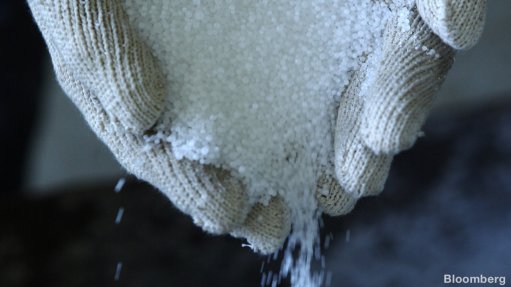
Mining company Bosveld Phosphates on Thursday stated that a secondary leak of contaminated process water from its fertiliser manufacturing plant in Phalaborwa, Limpopo, into the Selati river, caused by a crack in the concrete storm water canal on site owing to water pressure, had been completely stopped on January 6, after it had been reduced to a trickle on January 1.
Prior to this leak having been discovered, the plant's impoundment dam had overflown on December 31, owing to exceptional rainfall in late December, also resulting in a spillage of contaminated process water into the Selati river for a brief period.
The company stated that its engineers had responded immediately to this, repairing the leak within 24 hours, and was confident that, owing to the very high dilution factor caused by strong flows in the Selati river and the Olifants river downstream, there would be no lasting harm to the environment.
However, the South African government news service on Tuesday reported that South African National Parks spokesperson Ike Phaahla said the environmental damage caused by the spill was "extensive and spreading".
“Dead fish have, thus far, been observed over a 15 km stretch. Some fish have been taken for autopsies to determine the cause of death and acid levels,” said Phaahla.
It was also reported that the Department of Water and Environmental Affairs had already taken administrative action and had laid criminal charges against Bosveld Phosphates for contravening the National Water Act.
Bosveld had been struggling with legacy water management challenges since acquiring the mothballed fertiliser plant from petrochemicals giant Sasol in October 2011, and started operations in early 2012.
“[This] challenge was compounded by the extraordinarily high rainfall in the Phalaborwa area over the past two years, exceeding the 1:50 year flood level in January 2012 and the 1:100 year flood level in January 2013, [which was] exacerbated by high rainfall in December 2013,” Bosveld said in a statement.
The company said it would continue with its efforts to put in place long-term corrective measures agreed in close consultation with external specialists and the relevant authorities.